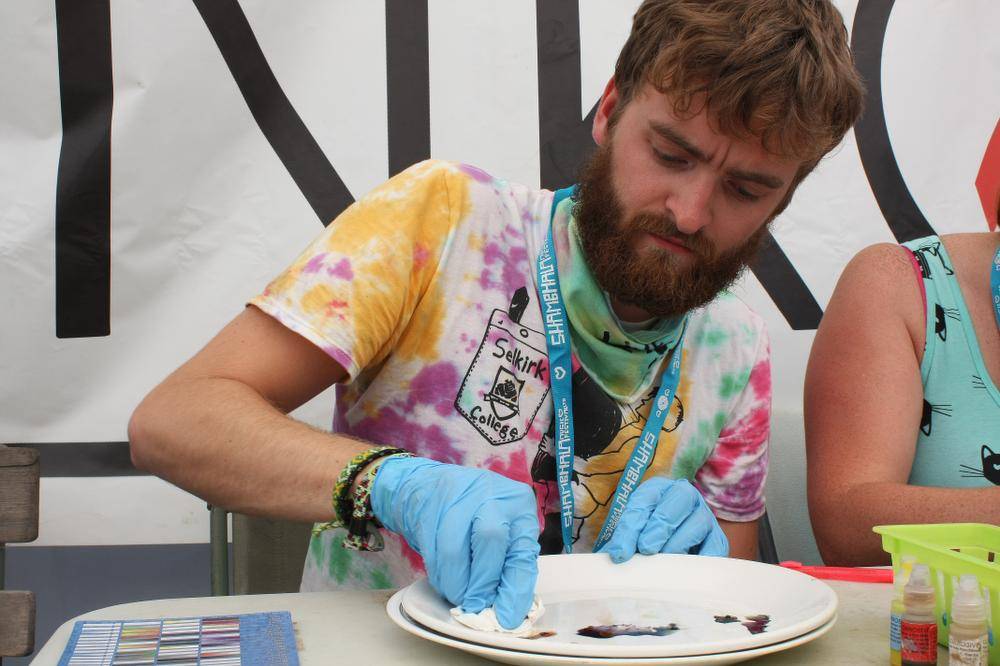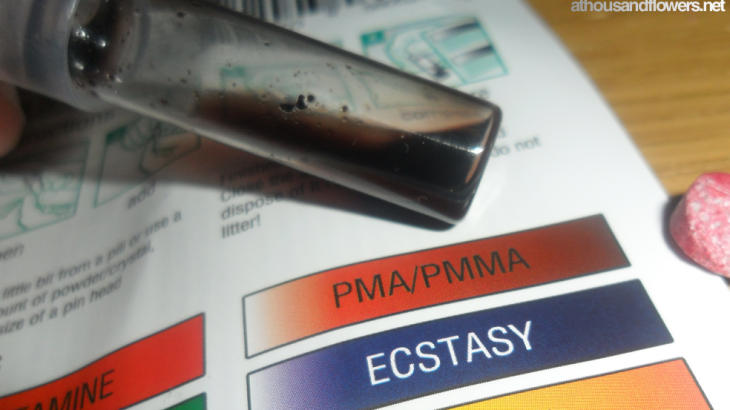This week saw the tragic death of 25-year-old Sylvia Choi at Stereosonic in Sydney. A 22-year-old was placed in an induced coma, and a further nine were taken to hospital, and discharged later.
This is only the latest in a growing string of drug-related injuries and fatalities at events in Australia.
Every day it is more and more obvious that the current methods used by police in attempt to quell drug-related harm (and drug use in general) at music festivals are NOT WORKING. From drug dogs to strip searches, to increased police presence and heightened security, the tragic but real truth is that people are still getting injured, and people are still dying.
It’s time to look for a new plan. Pill testing.
As we reported yesterday, emergency doctor and drug expert at Calvary Hospital (Canberra) Dr David Caldicott has spoken out about the need for pill testing at events. We interviewed Dr Caldicott last month about drug use at festivals, and the medical perspective on the whole issue: “What [doctors] would like to do is get to the festivals, test drugs there, and stop punters putting them in their mouths. If we find a nasty drug, we tell them it’s a nasty drug. We want to be there, watching the situation.”
“It’s not the festival organisers,” Dr Caldicott clarified. “It is very clearly the NSW police, who have again and again said ‘We will not tolerate pill testing in any shape or form as it condones drug use’.”
“The reality is in fact, which every man and his dog knows, that drug use is occurring. Frankly, if you go to a dance party, between a third and a half are going to be using something – that’s just the reality of the modern era.”
“From my own perspective, nothing angers me more than the implication that maybe if one or two people die, that’s gonna serve as a lesson not to consume drugs, because that’s the implication. As a doctor, that is utterly unacceptable to me. The first thing we do in health, the first thing we do, is to stop people dying. And I really don’t care how that happens.”
Pill testing, or drug checking, truly is the most obvious and effective solutions to reducing drug-related harm at events .
It’s no secret that ecstasy pills usually contain a lot more than just the MDMA the buyer was hoping for. A lot of the chemicals are really, really dangerous – especially when they’re combined with alcohol and other drugs. If people knew what was in their drugs – and they knew that what was in them was dangerous – there would be far less injuries and fatalities.
Pill testing at festivals is common in other parts of the world, such as Portugal and The Netherlands. Unfortunately, as Dr Caldicott mentioned, Australian festivals have not yet agreed to permit pill testing, as it would essentially be an admission from the festival that drugs are being used; and that’s legally unacceptable.

Pill testing at Shambhala Music Festival in Canada [source]
“I cant blame the law enforcement for enforcing the law, but if the law is actually leading to people dying, then it’s a dumb law.”
Will Tregoning, director of harm reduction organisation Unharm, agrees that drug checking is “essential”. “In the absence of any regulation of this huge consumer market… drug checking is an essential interim step, ideally combined with harm reduction advice provided by a professional. For example, ‘we’ve tested this for you, it’s PMA, here is the harm reduction advice that goes with that,’ and that wouldn’t involve that person providing direction to take or not take it. One of the effects of services like that is, when people find out the contents aren’t what they thought it was, they will often discard the drugs.”
Dr Caldicott says, “The work we’ve done here and overseas has shown so clearly that having a pill testing facility at any of these big dance party sites alters consumers’ behaviour; it actually changes what they do. When they find out their drug contains something other than what they thought it would be, as many as two thirds of consumers do something other than take it. There is absolutely no evidence to support drug dogs at all in terms of diminishing harm. For a tenth of the price of what the drug dog program cost, we could monitor all parties in NSW for this coming season.
“I won’t even argue about whether we’re right to do that, we can discuss the morality of drug consumption. But if we put in a process that appears to stop people consuming drugs in a manner that makes them unwell, it’s just immoral not to engage with that.
“We have cops who are spending a lot of their time trying to catch manufacturers and importers, who frankly are as disinterested in consumers, as it should be. The criminalisation of use is a dumb thing to do.”
Following Choi’s death at Stereosonic, a change.org petition has been founded by Adriana Buccianti, whose son passed in 2012 away from a drug overdose at Rainbow Serpent. The petition calls for pill testing at events. Her statement reads, “Doctors and experts are saying Australian festivals need to urgently introduce ‘drug checking services’ to stop more deaths. They’re common in UK and other countries.”
“I can’t get my son back but I want to make sure no-one else has to go through the hell of losing their child to a mistake like I did.
“I’m pleading with you – please help me stop more young people dying at festivals this summer. Introduce drug checking services.”
Myself and more than 30 000 others have signed it. You should too.
Tim Harvey, director of Rainbow Serpent Festival has responded to the petition with a statement announcing that they will be looking “very seriously” at the prospect of testing facilities or kits on site, and that the core problem preventing it is “legislative change.”
“We need some progressive and brave politicians who recognise the current approach isn’t working and can communicate the benefits of changing strategies to the mainstream Australian population.
“We don’t believe current practices such as sniffer dogs and strip searches will solve this complex problem. Drug use has been a reality in societies for thousands of years. Governments around the world are beginning to wake up to this fact and we will ultimately see Australia follow the lead of countries like Portugal and Ireland, who have moved towards treating recreational drug use as a health issue, which incorporates a strong harm-minimisation approach.
“Recreational use is occurring every weekend in every city and town around Australia. At music festivals, we at least have the benefit of exceptionally well-resourced medical crews to look after patrons.”
We can only hope that Rainbow Serpent will lead the way in encouraging other Australian events to take the same first steps towards introducing pill testing.
Last year a documentary came out by roving drug testing organisation The Bunk Police. What’s In My Baggie? is an educational, confrontational look at what’s really in the drugs that people are taking at festivals. Produced by Norways Velcrux Collective, it’s a harrowing but important watch:
The facts are obvious, the next step is obvious. Pill testing is a fantastic tool to help prevent drug-related injuries and fatalities at festivals. The fundamental issue here is harm reduction, not the law. We don’t need drug dogs and more police; we need education, information, and pill testing. Australia, this is what needs to happen.


